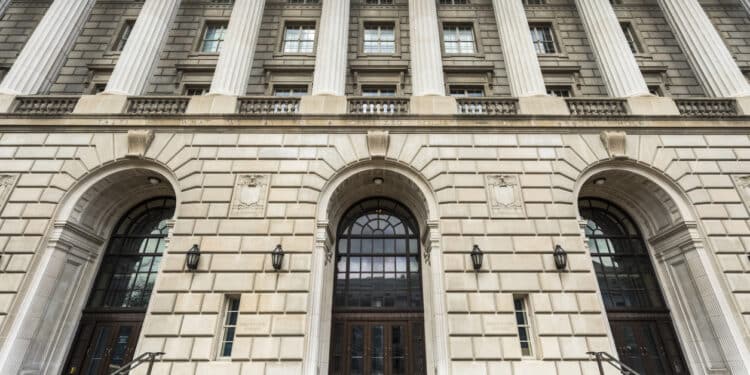Following a yearlong investigation into the alleged tax evasion scheme of billionaire Robert Brackman, reportedly the largest scheme in history, the U.S. Senate Finance Committee released a report detailing its findings on August 26. The report highlights the “shell bank” loophole in the Foreign Account Tax Compliance Act (FATCA) which allows offshore banks to accept U.S. funds without alerting the U.S. Internal Revenue Service (IRS). The report recommends that Congress and the Treasury strengthen the IRS Whistleblower Program in order to better fight tax fraud.
Brockman, who passed away in August, was indicted by the U.S. Department of Justice on 39 counts, including tax evasion, failure to file foreign bank account reports and money laundering. The report claims that Brockman allegedly “used a complex structure involving offshore foreign trusts, foreign and domestic shell companies, nominees and foreign bank accounts to conceal his assets.”
The Finance Committee’s investigation focused on the U.S.’s regulatory shortcomings which allowed this alleged scheme to go undetected for decades. One of the main findings of the report is the “shell bank” loophole in FATCA.
“With little effort, wealthy tax cheats like Robert Brockman are able to convert shell companies into shell banks, and self-certify they are reporting income held in offshore accounts to the IRS. Foreign banks in Switzerland and the Cayman Islands are then exempt from complying with basic FATCA requirements to identify and report U.S. accounts,” explains Finance Committee Chair Senator Ron Wyden (D-OR). “There are hundreds of thousands of shell companies in offshore tax havens that have been turned into IRS approved banks with virtually no scrutiny by the IRS. It doesn’t take a rocket scientist to see how this loophole leads to billions in tax evasion.”
In addition to calling for the closing of the “shell bank” loophole, the report calls for strengthening the IRS Whistleblower Program. It notes that the IRS would not have learned of Brackman’s alleged tax fraud scheme without information provided by a whistleblower. “A former Vista Director of Finance provided extensive information related to the investigation and filed a formal whistleblower claim with the IRS,” according to the report.
“Congress and Treasury should strengthen the IRS Whistleblower Office and better utilize incentives available for whistleblowers to come forward with information to detect offshore tax evasion,” the report states. “The IRS has lost thousands of revenue officers and examiners, and whistleblowers can serve as effective partners for the federal government to unpack sophisticated tax evasion schemes used by wealthy taxpayers and large corporations.”
The report highlights the fact that the IRS Whistleblower Program is in crisis: “the number of criminal tax investigations opened by the IRS CI division from whistleblower claims has declined from 43 in FY14 to six in FY20. Awards to whistleblowers and the amounts collected by the IRS have also dropped sharply over the last four years, particularly for major cases.”
The IRS Whistleblower Program was modernized in 2006 to offer monetary awards to individuals who expose large-scale tax violations. Since then, the program has proven to be remarkably effective, awarding whistleblowers over $1 billion based on the collection of over $6 billion in back taxes, interest, penalties, and criminal fines and sanctions.
However, as the report notes, the program has fallen into crisis in recent years. In June, the IRS Whistleblower Office released its annual report to Congress and whistleblower advocates were quick to highlight the urgent need for reform shown by the dipping statistics.
Siri Nelson, Executive Director of National Whistleblower Center (NWC), stated that the data from the IRS’ report is “extremely disappointing. The low numbers are especially troubling when other whistleblower award programs have had banner years – the CFTC and SEC award programs as well as the False Claims Act. The only people celebrating these low numbers for the IRS whistleblower program are the millionaire and billionaire tax cheats.”
Whistleblower attorney Stephen M. Kohn of Kohn, Kohn and Colapinto, LLP stated, “The IRS whistleblower report should be a massive wakeup call to the Congress that it needs to take action now and pass the bipartisan and bicameral reform legislation – the IRS Whistleblower Program Improvement Act.”
The bipartisan IRS Whistleblower Program Improvement Act of 2021, introduced by Senators Wyden and Chuck Grassley (R-IA), offers seven common sense reforms designed to bolster the effectiveness of the program. The bill is widely supported by whistleblower advocates. NWC has issued an action alert calling on Congress to act immediately to pass the IRS Whistleblower Program Improvement Act and save the program from its current crisis.
Read:
Wyden Investigation Uncovers Major Loophole In Offshore Account Reporting
The IRS Whistleblower Program is in Even Worse Shape than We Thought




